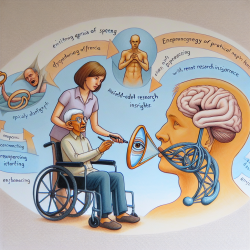Empowering Tomorrow's Leaders: Mastering Clinical Supervision in Primary Care Behavioral Health
The integration of behavioral health into primary care settings is a growing necessity, especially in the wake of increasing mental health needs post-COVID-19 pandemic. As such, the role of clinical supervisors in Primary Care Behavioral Health (PCBH) is pivotal in shaping the future of healthcare delivery. The recent study, "Using a Delphi Technique to Define Primary Care Behavioral Health Clinical Supervision Competencies," provides a roadmap for developing the essential competencies needed for effective clinical supervision in this dynamic field.
Understanding the Core Domains
The study utilized the Delphi technique, a structured communication method, to reach a consensus among experts on the competencies required for clinical supervision within the PCBH model. Three primary domains were identified:
- Primary Care Knowledge: This domain emphasizes understanding the primary care culture, the impact of social determinants on health, and the integration of behavioral health competencies within primary care settings.
- Clinical Supervision Skills: This includes creating a positive learning environment, monitoring learner performance, and employing flexible teaching methods tailored to the primary care context.
- Clinical Supervisor Development: Focuses on self-reflection, continuous professional development, and employing evidence-based practices in supervision.
Implementing Competencies for Success
For practitioners aiming to enhance their supervisory skills, integrating these competencies into daily practice is crucial. Here are actionable steps to consider:
- Engage in Continuous Learning: Stay updated with the latest research and practices in PCBH. Participate in workshops and training sessions that focus on these identified competencies.
- Create a Supportive Environment: Foster a non-threatening and psychologically safe space for learners. Encourage open communication and feedback to enhance learning experiences.
- Utilize Self-Assessment Tools: Regularly evaluate your supervisory skills and identify areas for improvement. This reflective practice can significantly enhance your effectiveness as a supervisor.
The Path Forward
As the demand for integrated behavioral health services in primary care continues to rise, the need for well-trained clinical supervisors becomes increasingly critical. By adopting the competencies identified in this study, practitioners can not only improve their supervisory skills but also contribute to the development of a competent and responsive behavioral health workforce.
For those interested in delving deeper into this topic, the original research paper provides a comprehensive analysis and is an excellent resource for further study. To read the original research paper, please follow this link: Using a Delphi Technique to Define Primary Care Behavioral Health Clinical Supervision Competencies.
By embracing these competencies, clinical supervisors can play a transformative role in shaping the future of primary care behavioral health, ultimately leading to improved outcomes for both learners and patients.










